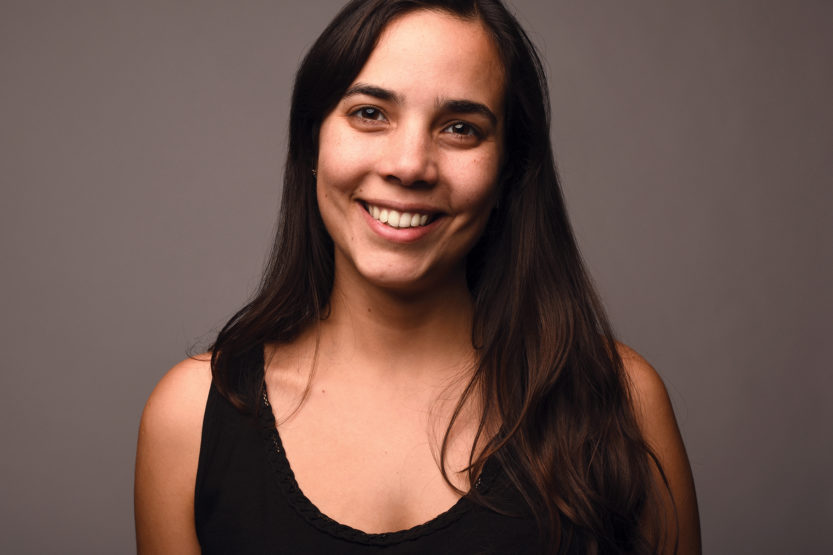Logistics enhancer
 “We want to start making a difference in terms of creating awareness and trying to change people’s habits,” says Carolina Chantrill of her volunteer work with Nilus, a nonprofit focused on reducing food waste. (Image courtesy of Carolina Chantrill)
“We want to start making a difference in terms of creating awareness and trying to change people’s habits,” says Carolina Chantrill of her volunteer work with Nilus, a nonprofit focused on reducing food waste. (Image courtesy of Carolina Chantrill) An enormous amount of food is wasted globally every year, with up to one-third of all edibles being discarded, according to the Food and Agricultural Organization of the United Nations. At the same time, the FAO found that nearly one in nine people in the world suffer from undernourishment. Carolina Chantrill, MUP ’15, is striving to change that situation through her volunteer work with Nilus, a nonprofit organization based in Buenos Aires, Argentina. The organization is developing an app that will connect businesses and organizations that have surplus food to those in need.
“When you think about what really makes quality of life, food and nourishment is kind of the base for everything,” says Chantrill, who is originally from Argentina.
More than 1.3 billion tons of food is wasted annually. In Argentina, it’s an inefficient process for nonprofits to obtain the food they need, Chantrill says. Often, they must call or visit a food bank to make a request, and then they have to schedule and pay for transporting the goods. Nilus is designed to expedite that process, even going as far as notifying shippers that items are ready for transport.
Right now, Nilus is conducting a pilot project in the city of Rosario, Argentina. Chantrill, whose background is in environmental engineering, volunteers about five hours a week to help Nilus with the planning and testing of its app.
Nilus has gained the attention of the tech community. In 2017, the organization received $350,000 in funding from the Google Impact Challenge, as well as support from Google and Ashoka, an organization that invests in social entrepreneurship.
Chantrill knows there’s a long road ahead for Nilus, which is a startup. In time, she hopes to see the organization’s efforts expand to other countries. But even in its early stages, the mere existence of Nilus spotlights an important issue. “I think most people who live in cities, and who are from middle-class families, don’t really realize how much food we waste,” Chantrill says. “We want to start making a difference in terms of creating awareness and trying to change people’s habits.”

